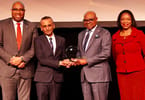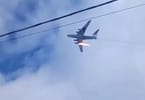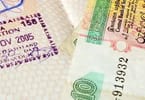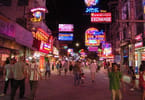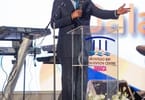Travel agents have joined airlines in hammering the International Air Transportation’s global payment system in the wake of 550-million-baht fraud involving the industry body’s Bangkok office.
The International Air Ticket Agency Association (ITA), which represents about a third of the 300 agents in Thailand, asked IATA to stop threatening to remove them from the system that allows them to sell tickets.
The ITA, whose members accounted for 60-65% of the 30 billion baht in ticket sales channelled through IATA’s billing and settlement plan (BSP) last year, has also called on IATA to stop blaming agents for the fraud.
“All these problems stem from the system under IATA’s supervision, so IATA needs to be held responsible for the damages that occurred,” ITA secretary-general Surasak Bunyanankij said.
“IATA should not put the blame on other parties involved [or] issue letters to intimidate agents.”
Eighty-four carriers were affected by the fraud involving the global system that collects money from travel agents on behalf of airlines. They say the IATA system lacks transparency and efficiency.
The defrauded 550 million baht came from amounts due by certain agents in Thailand from January 2005 to August 2009 that were not received by IATA’s Bangkok clearing house.
Shortly after an investigation was launched into the Bangkok office last August, the IATA employee who was suspected of having committed the crime was found dead. Police are still investigating the death.
IATA said the fraud, which involved counterfeiting bank statements, falsifying bank account reconciliations and destroying transaction records, was unprecedented.
Thai Airways International and Bangkok Airways were among the hardest-hit carriers with bills of 150 million and 55 million respectively. They were outraged by IATA’s statement that they are contractually bound to cover the stolen funds.
The IATA Bangkok office has demanded travel agents show payment records dating back several years to aid its investigation. If they do not hand over the information soon they will be barred from the system, it said.
Mr Surasak of the ITA said there was a lack of communication between IATA’s Bangkok office and agents.
“They hardly talked to us but always remind us in writing what we need to follow under the established rules,” he said. “Yet they never made clear how they work. They have transparency problems. They are just indifferent to agents.”
Aleksander Popovich, IATA’s senior vice-president for industry distribution and financial services, said the association had demanded proof from agents that payments were made because IATA’s auditors identified certain gaps in the BSP’s account history.
“Agents unable to provide proof are placed in default and bank guarantees are presented for encashment,” he said.
He said IATA was pursuing all available options to recover losses, part of which would come from the insurance that provides US$4 million for criminal acts – less than a third of the defrauded amount. Mr Popovich said airlines may get “around 40%-plus” of their money back from the fraud.





